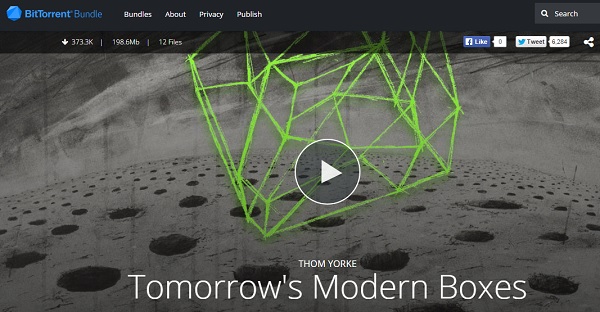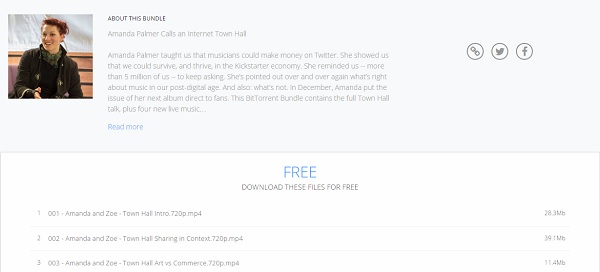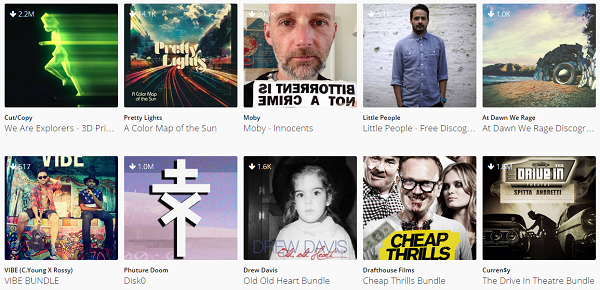
Peer-to-peer download service BitTorrent has long been associated with piracy and file sharing. More often than not, it is where people go if they don’t want to pay for music. That all changes now with the implementation of the paywall option on its Bundle publishing platform.
BitTorrent has been working on getting music worth paying for in the last few months. It announced Bundle last year, but until now it has been an experiment with getting the distribution system working as intended. Essentially users will be able to download a smaller selection of songs and content from each artist for free, while the rest is hidden behind a premium bundle. Until now, the premium bundle could be accessed by signing up with an email. Several top performers – like Madonna, Moby, and Amanda Palmer – have already collaborated with BitTorrent on this platform when it was first announced.

Thom Yorke of Radiohead fame introduces the first album that BitTorrent users will actually have to pay for to fully download. Tomorrow’s Modern Boxes is Yorke’s newest studio album, and is only available through the P2P service. Yorke is no stranger to experimenting with digital distribution methods, as he sold Radiohead’s seventh studio album on a “pay what you want” pricing plan over the band’s website.
Some 90-percent of the proceeds of the sale of the album will go back to the artist, which is the same deal that BitTorrent is offering to any content creator who wants to distribute their work over Bundle. Fans can pay for the bundle using either credit card or PayPal; and in an interesting twist, all associated sales data is passed on directly to the artist. The pricing of the bundle is also left to be determined by the artist. Ideally, this is to give self publishing artists and content creators another avenue for making a living; one with a better cut of the sales.

While this looks like a great new method of music distribution, especially for those who are not satisfied with the terms provided by music streaming services (who often provide extremely low returns per song played), it is still a bit too early to see if the big recording companies will come around and embrace the very thing that they have been fighting against for the last decade.
[Source: The Next Web]
Follow us on Instagram, Facebook, Twitter or Telegram for more updates and breaking news.


